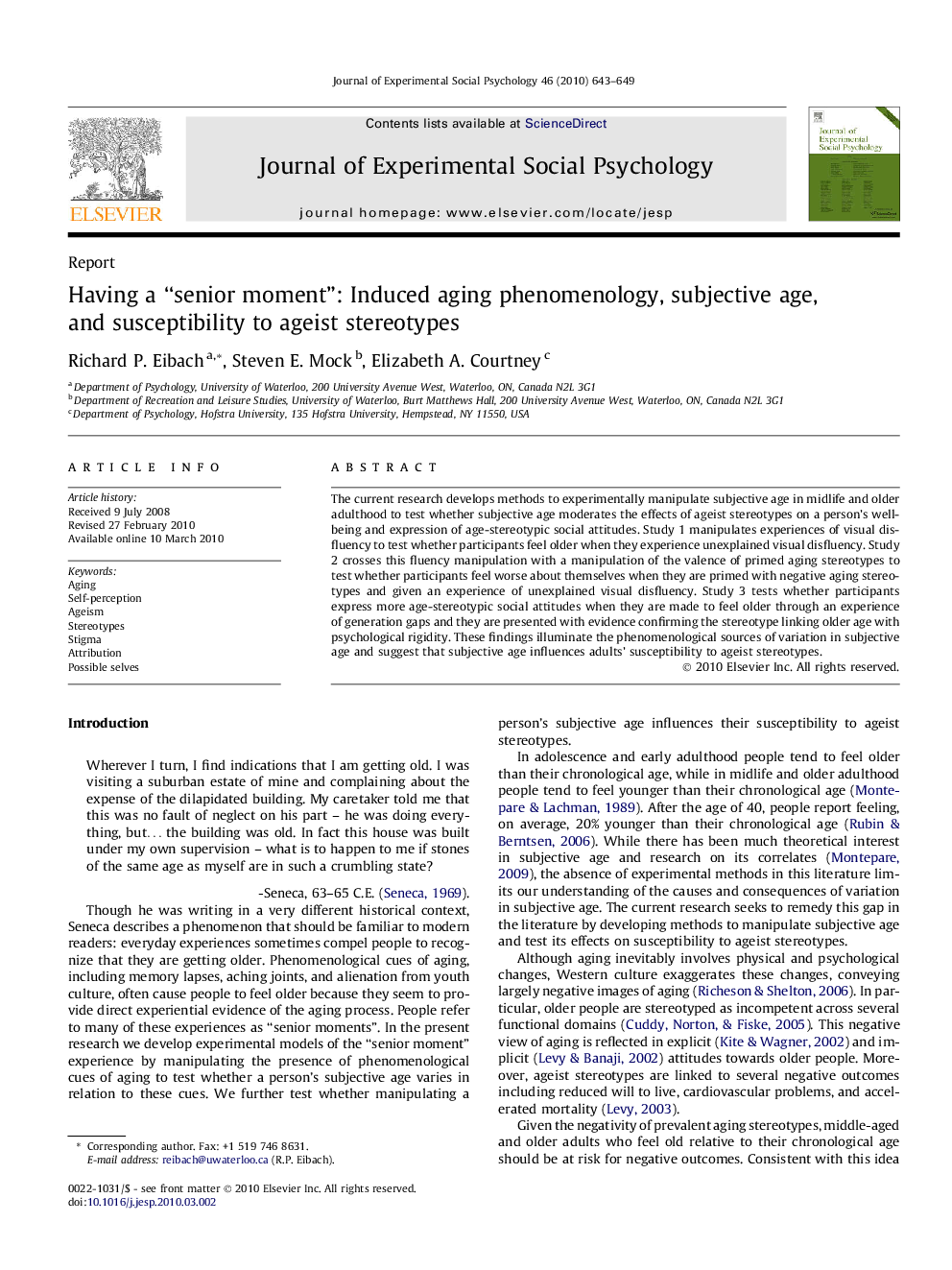| Article ID | Journal | Published Year | Pages | File Type |
|---|---|---|---|---|
| 948711 | Journal of Experimental Social Psychology | 2010 | 7 Pages |
The current research develops methods to experimentally manipulate subjective age in midlife and older adulthood to test whether subjective age moderates the effects of ageist stereotypes on a person’s well-being and expression of age-stereotypic social attitudes. Study 1 manipulates experiences of visual disfluency to test whether participants feel older when they experience unexplained visual disfluency. Study 2 crosses this fluency manipulation with a manipulation of the valence of primed aging stereotypes to test whether participants feel worse about themselves when they are primed with negative aging stereotypes and given an experience of unexplained visual disfluency. Study 3 tests whether participants express more age-stereotypic social attitudes when they are made to feel older through an experience of generation gaps and they are presented with evidence confirming the stereotype linking older age with psychological rigidity. These findings illuminate the phenomenological sources of variation in subjective age and suggest that subjective age influences adults’ susceptibility to ageist stereotypes.
